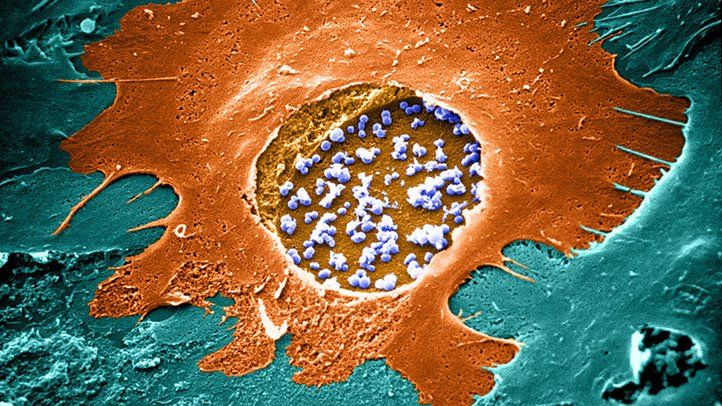Chlamydia is a bacteria causing sexually transmitted infection. It is estimated that chlamydia is the most common STD, with 3 to 4 million new cases each year. The chlamydia infection rate is highest in the western and midwestern parts of the country. Chlamydia spreads from person to person through direct contact. It is almost always spread via sexual contact. Pregnant women may also transmit bacteria to their children during childbirth.
Chlamydia usually causes no symptoms, might cause us to be unaware. Patients with chlamydia without symptoms can still transmit the disease to others. If you have symptoms, they may not show up until after you have sex with an infected partner.
Women’s symptoms include:
• Abnormal, smelly vaginal discharge
• Burning sensation during urination
• Pain during sex
• If the infection spreads throughout, one may experience lower abdominal pain
Symptoms in men include:
• Penile discharge
• Burning sensation during urination
• Pain and swelling of one or both testicles (although this is less common)
Chlamydia may cause discharge, low back pain, bleeding between menstrual periods, and a burning sensation when urinating. The bacteria infect the urinary tract and cervix before entering the fallopian tube. Cervical infections can also spread to the rectum. If chlamydia is left untreated, 40% of infected people will develop pelvic inflammatory disease (PID), a disease that causes permanent damage to the uterus and fallopian tubes. This damage can lead to infertility, chronic abdominal pain and ectopic pregnancy. During pregnancy, this damage can lead to premature delivery, neonatal conjunctivitis, and pneumonia in infected babies. Other symptoms include cervicitis, urethritis and endometritis, swelling of the vestibular glands, bleeding after intercourse, and dysuria.
When symptoms appear, men and women who have rectal infections due to anal sex may experience rectal discharge and painful bowel movements. Chlamydia infection rarely causes male infertility, but if it enters the epididymis, it can cause fever and pain. The report shows that pregnant women infected with Chlamydia trachomatis are ten times more likely to cause stillbirth, neonatal death and significantly shorten gestational age.
Chlamydia Causes
Chlamydia trachomatis is the bacterium that causes chlamydia and is most commonly spread through unprotected vaginal, oral, or anal sex. You can get it from the semen or vaginal fluid of an infected person. Even without sex, it can be passed from one infected person to another through genital contact. Pregnant women can give it to their unborn child during delivery.
Chlamydia diagnosis
Your doctor can use several different tests to diagnose chlamydia. You may use a swab to collect a sample from the male urethra (the urine flows out of the tube) or the female cervix. It will go to the laboratory for analysis. You can also test for bacteria in a urine sample.
Chlamydia is curable. Since it is a bacterial infection, doctors can treat it with antibiotics. If you have chlamydia, your doctor will prescribe oral antibiotics. They will also advise your partner to receive treatment to prevent reinfection and further spread of the disease.
Treatment
Anyone who has or suspects chlamydia needs treatment to prevent long-term health consequences, including infertility and ectopic pregnancy. Doctors often prescribe antibiotics to treat chlamydia. A person usually takes antibiotics in pill form. Sources recommend repeating the test at least every 3 months after treatment, depending on the person’s risk factors.
The CDC also recommends that people with chlamydia not have sex for 7 days:
• After a single dose treatment
• While completing 7 days of antibiotic treatment
If a person is diagnosed with chlamydia, they should inform all couples who have had sexual contact in the past 60 days so that they too can be tested and treated. If a couple does not receive or complete treatment, there is a risk of reinfection or transmission of the virus to another person. Sometimes a doctor can also be treated for gonorrhoea, since the bacteria that cause the two infections often appear together.

